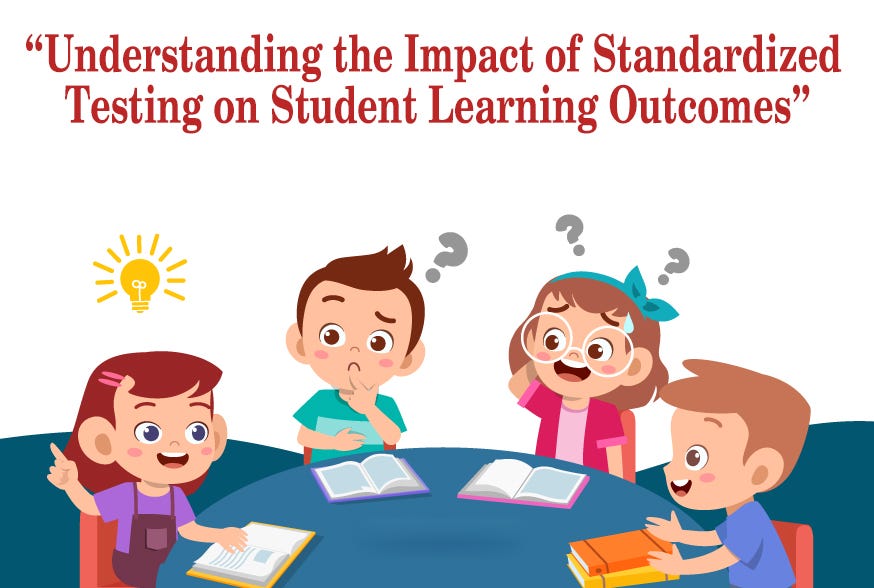The effectiveness of standardized testing
The effectiveness of standardized testing in assessing student performance.
Standardized testing is a tool used by educators and policymakers to assess student performance, particularly in areas such as reading, writing, and mathematics.

Educators worldwide widely use standardized testing to objectively measure student knowledge and abilities. Its effectiveness in assessing student performance sparks debate, with proponents viewing it as accurate and reliable. While critics argue it can be flawed and biased against certain student groups.
Supporters emphasize that standardized testing offers consistent and objective measures across schools and districts. Facilitating comparisons and highlighting areas for improvement.
This can be particularly useful in identifying achievement gaps between different groups of students, such as those from low-income backgrounds or non-native English speakers. By focusing on these gaps, educators can develop targeted interventions to help these students improve their performance.
Another argument in favor of testing is that it provides a measure of accountability for teachers and schools. Standardized tests allow policymakers and administrators to assess if teachers and schools are achieving their academic goals based on student performance.
This helps pinpoint areas needing more resources or support and holds educators accountable. Standardized testing also provides policymakers with valuable data for informed decisions on education policy and funding.
However, despite these benefits, there are also several criticisms of standardized testing. One of the main criticisms is that it can be biased against certain groups of students. Particularly those from low-income backgrounds, non-native English speakers, and students with disabilities.
These students may lack equal opportunities compared to their more privileged peers, affecting their performance on standardized tests.
Critics also argue that these tests may culturally bias, relying on assumptions not universally relevant to all students.
Additionally, standardized testing can prioritize test preparation and memorization over deeper learning and critical thinking. Teachers may feel compelled to emphasize tested skills rather than broader, untested concepts. Potentially limiting students’ essential skills for success in college and careers.
In addition, standardized testing raises concerns about its impact on students’ mental health. Many students feel stressed about these tests, fearing their future academic and career prospects. This stress can harm mental well-being and deter some from pursuing higher education.
Despite these concerns, many educators and policymakers believe that standardized testing is an important tool for assessing student performance. They argue that tests, when used appropriately, provide valuable data to improve education outcomes and narrow achievement gaps.
Supporters of standardized testing argue it maintains consistent academic standards and holds educators accountable.
In order to address some of the criticisms of standardized testing, educators and policymakers have developed a number of strategies.
One approach is to use multiple measures of student performance. Assessing problem-solving, critical thinking skills, and abilities in collaboration and teamwork.
Conclusion
The effectiveness of standardized testing in assessing student performance is a complex and controversial issue. While testing provides a consistent and objective measure of student knowledge and abilities, it also has several criticisms.
Certain student groups can face bias in standardized tests. Promote an excessive focus on test preparation and memorization, and potentially harm students’ mental health and well-being.
Despite these concerns, standardized testing remains an important tool for assessing student performance. When used appropriately, standardized tests can provide valuable data that can help improve education outcomes and close achievement gaps.
Additionally, they can ensure consistent academic standards for students and hold educators accountable for their performance.
Moving forward, educators and policymakers need to continue to develop strategies that address the limitations of standardized testing.
This involves using diverse student performance measures, creating culturally responsive assessments, and enhancing critical thinking and problem-solving skills in students.
By taking a more holistic approach to assessing student performance. We can ensure that all students have the opportunity to succeed and reach their full potential. 온라인카지노사이트